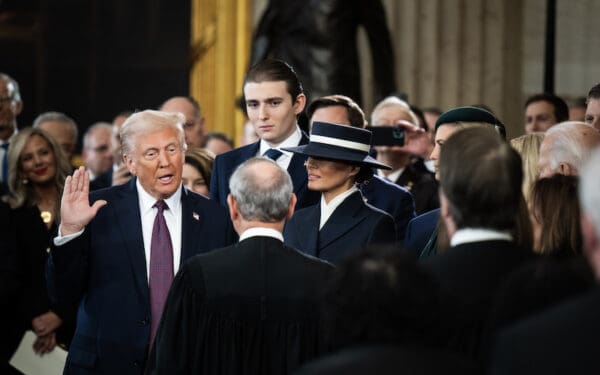
The Clean Heat Standard would direct fossil fuel distributors to help households and businesses switch their outdated heating technology (like the one above) to modern, efficient, and clean models. Photo: Shutterstock.
To say Vermont’s pursuit of a Clean Heat Standard has been contentious is an understatement. This commonsense policy aims to slash the pollution and bills our heating technologies generate. But Big Oil took advantage of political wariness and valid public concern over high energy bills to spread disinformation about getting to 100% clean energy in Vermont. And our decision makers bought into it; the Standard is all but dead.
So, is it true that the Standard would have cost Vermonters four dollars per gallon of fuel oil more every month on their utility bills, like Governor Scott said it would? That laws and policies which cut pollution are a dead end and we should just give up on our commitments?
No, of course not.
The Clean Heat Standard hasn’t panned out – but that doesn’t mean advocates (whether lawyers like me, or everyday Vermonters who made themselves a part of the public process) didn’t try to protect our wallets while protecting the climate.
Let’s dive into what happened to the Clean Heat Standard. And let’s explore why Vermont’s failure to adopt the standard doesn’t mean we have to abandon our targets for cutting carbon pollution the way Governor Scott says we do.
What Is a Clean Heat Standard?
Vermont passed a law in 2023 called the Affordable Heat Act meant to slash the pollution that is overheating our planet and causing catastrophic flooding and other extreme weather. Most of the state burns imported oil, propane, and gas for heating our buildings. Over time and if done right, the Affordable Heat Act should wean us off such costly, price-volatile, and climate-damaging fuels. It would help transition homes and businesses off oil, propane, and gas heating systems and upgrade to cleaner electric heating technologies.
The law tasked the Vermont Public Utility Commission with designing a program requiring companies that bring fossil fuels into Vermont to offset those sales by obtaining clean heat credits. The more fossil fuels a company brings in, the more credits it must earn.
That’s where a Clean Heat Standard comes in – it’s essentially a roadmap for how to accomplish the law’s objective. The Standard would clarify details such as how the credit system works to ensure Vermont buildings decrease their use of climate-damaging fossil fuels.
Would the Clean Heat Standard Have Been Expensive?
The simple answer is that the program wasn’t expected to cost anywhere near the four dollars per gallon a month Governor Scott was touting.
However, the Standard would cost families and businesses something. First is the cost of replacing fossil fuel-based heating systems with electric ones like heat pumps, installing new appliances like electric water heaters, or (less ideally) sticking with the old systems but switching to biofuels. Then is the cost of the program itself, like any extra expenses it puts on fossil fuel suppliers, which they would pass on to remaining fossil fuel customers via monthly bills.
Vermont’s Public Utility Commission, in charge of crafting the Clean Heat Standard, estimated that the program would add about $0.08 more per gallon of fuel oil in 2026 and would rise to $0.58 more per gallon in 2035.
While that’s not nearly as high as four dollars per gallon, the reality is some Vermonters still can’t afford that additional expense.
The Clean Heat Standard was just one way to achieve the goals of the Affordable Heat Act. Principal among those goals is that everyone can access clean heating technologies that cut fuel use and slash monthly bills – especially families who typically can’t afford to outright. The law actually requires fossil fuel companies to serve low- and moderate-income residents so that finances wouldn’t be a barrier for those who want to upgrade.
The law essentially opens a pathway. It creates strategies to help Vermonters navigate how to pay for that new technology – especially if they can’t afford to pay the full price themselves. But the fossil fuel industry didn’t want us to use this path, so they planted disinformation about the price tag of the standard – messaging that Governor Scott then adopted. We still have a chance to use this pathway and get the Clean Heat Standard or a policy like it done right. We can’t let fossil fuel propaganda end our efforts.
Climate Change and Costly Bills Aren’t Waiting, Why Should We?
The Clean Heat Standard didn’t get to be fully designed or implemented, despite attempts to ensure no one gets left behind or suffers from bills they can’t afford. And Big Oil took over the narrative, convincing decision makers that somehow, their dirty products were worth sticking to – were “cheap.”
Admittedly, there were some problems with how the Standard was initially designed. For example, it counted biofuels as one of the “clean” fuels that suppliers can turn to without properly accounting for the impact of using extra land to grow the crops for biofuels or how much they overheat the planet. But the lesson here isn’t that policies aimed at curbing climate change aren’t worth the effort or can’t be affordable. It’s that together, we can craft solutions that benefit everyone – no matter how much you earn or where you live. The Standard’s demise should invigorate us in trying again – and keep trying until we get it right.
Because if we roll over for the fossil fuel industry’s lies about oil, gas, and propane – climate change isn’t going to stop. And that means more extreme flooding like we experienced in 2023 and 2024. That means the cost of rebuilding our homes and neighborhoods, the cost of hospital visits and healthcare from worsening sicknesses and allergies. Fossil fuels will drain our bank accounts no matter what, contrary to what the industry wants you to believe.
As we look ahead towards what comes next for Vermont, at Governor Scott’s Trump-like rollbacks of pollution-cutting policies and laws, we need to stay the course on climate change more than ever. What happened with the defeated Clean Heat Standard was a learning experience, not a finality. We can get this right, and we won’t stop working together until we do.
This is part of a series diving into our most commonly asked questions, current events, and topics of curiosity.



